The days of traveling far and wide and being completely unconnected from home are long gone.
Today, we travel with mobile phones to keep in touch with friends and family, plus laptops for work, and even a tablet for the kids to play games or do homework on.
Whether you’re on a business trip, a gap year vacation, a family vacation, or a weekend getaway, you’ll likely want to stay connected, whether to chat with friends and family, research restaurants, search flights and accommodations, or just to check email and your social networks.
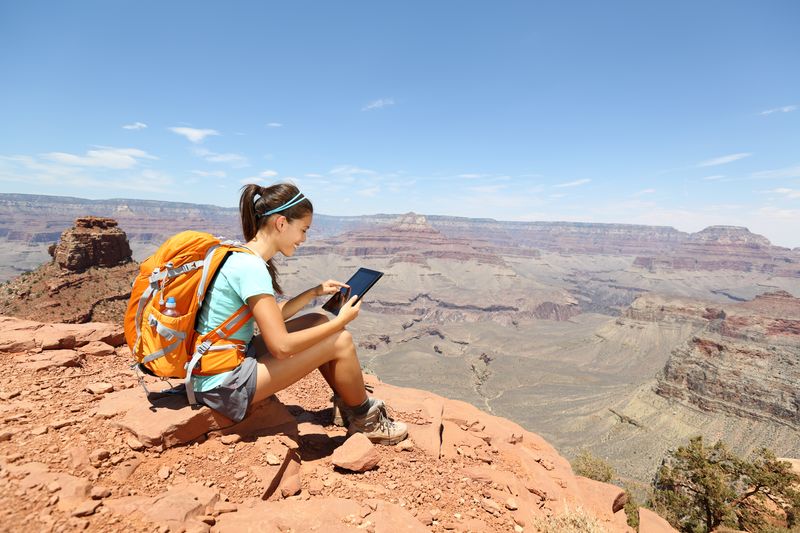
Unfortunately, using the internet while traveling comes with some risks and inconveniences and unsecured public networks can open you up to data theft and hackers. Some countries even block access to certain websites, like WhatsApp or Facebook.
Using a VPN can help reduce some of the risks and hassle of using the internet away from home.
Should You Use a VPN for Travel?
A VPN is a service that gives you safe and private Internet access as you travel.
A good VPN encrypts your data, protecting you from other users stealing passwords, usernames, credit card numbers and other personal information.
If you have a VPN enabled, you can use the VPN to make it appear as if you’re accessing the internet from your home country or even another country. This can let you access geo-restricted websites, and access your home country’s video providers like Netflix or Disney+. You can also use a VPN to get around country-specific blocks of specific sites, like Facebook or WhatsApp.
What is a VPN?
A VPN is a Virtual Private Network (thus the VPN acronym). A VPN lets you create a secure connection to another network over the internet.
The data from your device is sent through the VPN company’s server and a good VPN encrypts the data that’s sent between your phone and the VPN’s server.
You can use a VPN on your laptop, desktop computer, smartphone (including iPhones, Androids and more) as well as tablets.
Keep your information secure
Since a good VPN will encrypt your data, you absolutely want to use a VPN if you’re logging into free public Wi-Fi, which can be especially vulnerable to hackers.
A VPN encrypts all the data traveling back and forth from your device. That means that if you’re using a VPN on an unsecured public Wi-Fi network, then anyone trying to see what you’re looking at online will only see nonsense text, and your information will stay safe and private.
Tired of slow Wi-Fi? Learn how to get high speed Wi-Fi when you travel, and check out our reviews of SolisWifi, GlocalMe, and the TravelWifi (formerly Tep) hotspots.
Keep watching your home country’s Netflix shows when abroad
Netflix has different TV shows and movies on offer for every country where they offer the service. This means that you may not be able to access the TV shows you watch at home on Netflix while traveling in Mexico, or overseas in Europe or Asia.
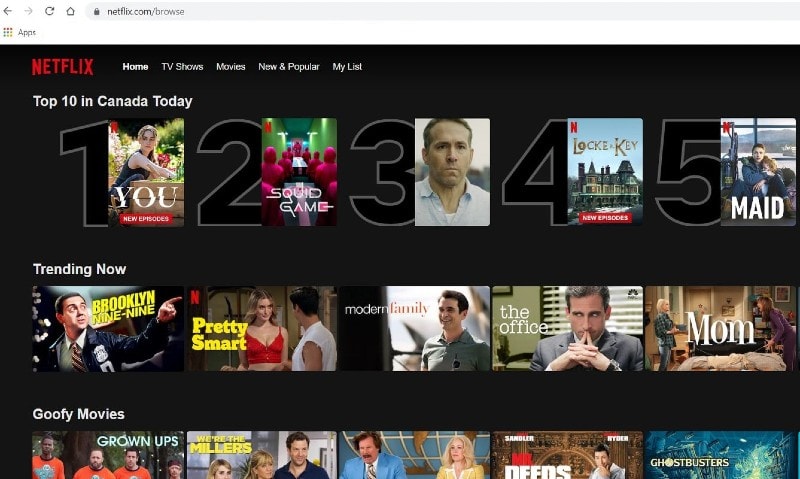
However, if you’re in Germany (for example), and set your country to the USA on a VPN, then you’ll be able to watch your USA-based Netflix shows, in your home language.
Access online shopping and other internet services as if you’re in your home country
Many websites, from Best Buy to CBS, have different websites in different countries.
Some websites even completely restrict access to certain countries. For example, here in Canada, I’m not able to watch TV shows from USA-based TV networks websites. However, if I set my VPN to USA-based, I can watch TV shows on CBS (a USA-based TV network) from Canada all I want.
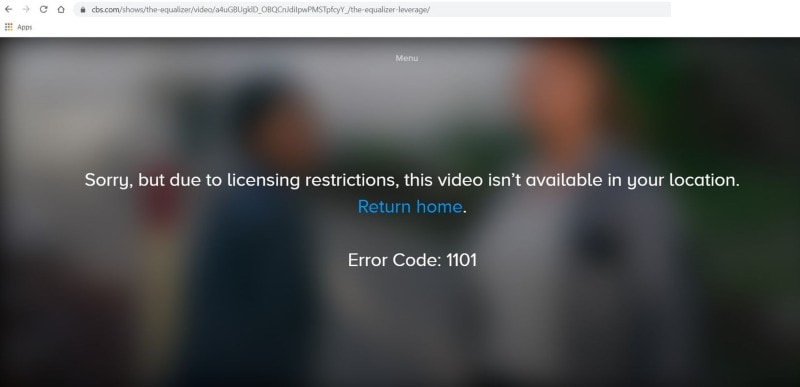
Access websites that are blocked
Some governments (like China and Thailand) censor access to certain websites, such as Facebook, WhatsApp, and YouTube.
A VPN can get you access to government blocked websites and let you continue to access the sites as if you haven’t left home.
Prevent credit or bank accounts from being frozen
If the website where you hold your investments suddenly notices someone logging into your account from a foreign country, they may think your information has been stolen, and put a hold on your account. With a VPN you can browse the sites as if you were still in your home country letting you still pay your bills on time.
Get better deals when shopping
Booking sites often give different prices in different countries. It may be worth trying out a couple of location options on your VPN when you’re booking local tours, for example, to see if you can get a better deal before you even set foot in the country you’re planning to visit.
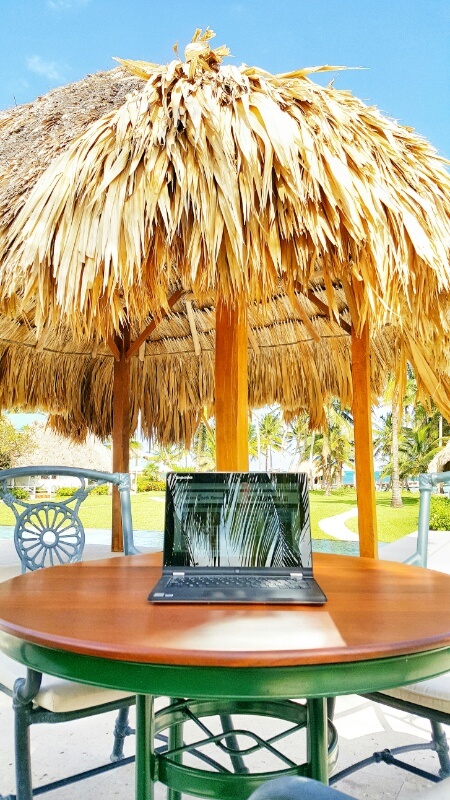
How to choose a good VPN for travel
Because a VPN may have access to your data, it’s important to chose a reputable, safe VPN service.
You get what you pay for
Generally, free VPNs are less secure than VPNs that you pay for. Free and very cheap VPNs often sell advertising, or they may share your information and online activity with other companies.
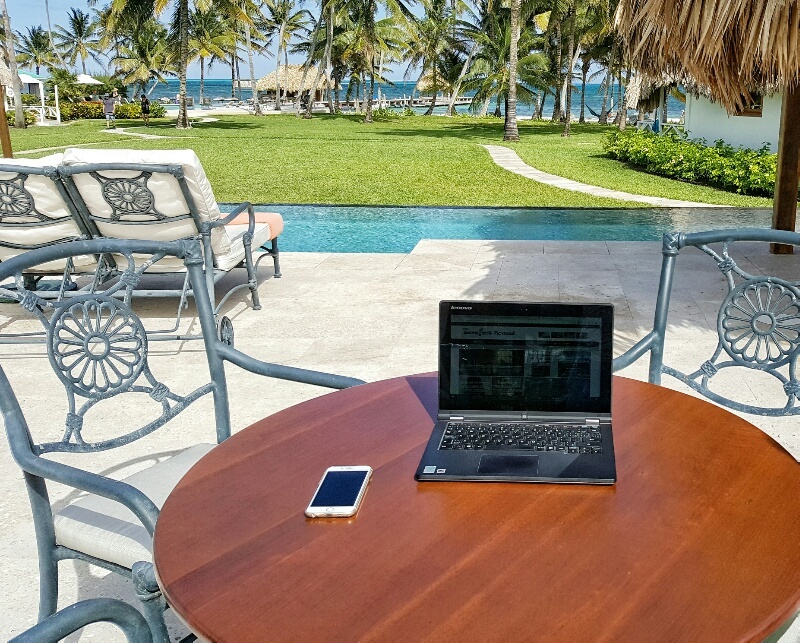
Choose a trusted company
Sure, newer and smaller VPN services are often cheaper, but they’re not always as well reviewed, or as transparent in their business activities. Choosing a larger, established VPN service, with plenty of reviews, can help keep your data secure.
Make sure the VPN encrypts your data
Shockingly, not all VPN services encrypt your data. Make sure the VPN you choose offers everything you want and need including encryption between you and their servers.
Pick a VPN with a large choice of countries
Some VPN services only offer a few countries to choose from. While this might work for you, the fewer countries there are to choose, the less places you can truly benefit from a VPN.
Choose a Logless VPN
A major advantage of a VPN for international travel is protecting your privacy, but some VPN services keep logs of your browsing activity. They can then release that information to a third party to turn an extra profit or to law enforcement.
Private Internet Access (PIA) is a VPN that has a no logs policy, and it’s even independently audited by Deloitte to give you that extra assurance.
Logs can contain information like your original IP, the new IPs assigned to you by the VPN, your browsing history and the websites you visited, connection logs, how long you were connected, your connection time, and more. While holding some information is necessary, the more information a company keeps on you can lead to problems if they’re ever hacked or subpoenaed and forced to hand that information over.
Look for a VPN that is logless, and that has been confirmed not to keep logs by an independent audit. One large company that’s a logless provider that doesn’t store VPN data is NordVPN, but there are others as well.






